a&e features
In memoriam
A look back at the LGBTQ voices we lost in 2020
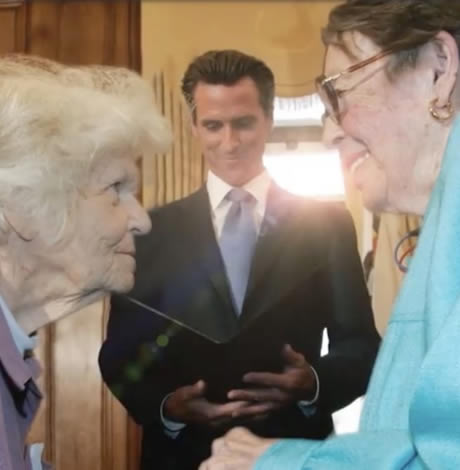
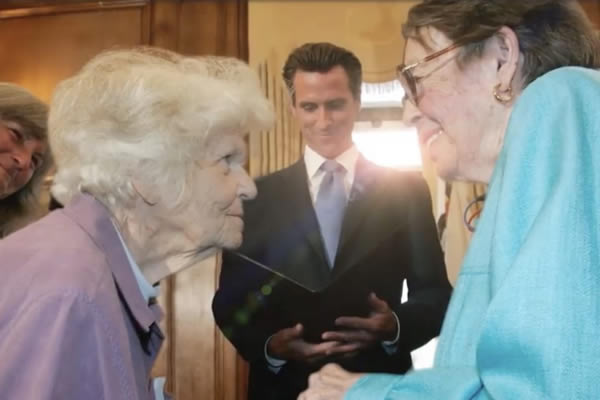
Ed Flipowski, a public relations executive whose work with Gucci and other companies influenced the fashion industry, died on Jan. 10 at 58 from complications from surgery at his Manhattan home.
Michel Georges Alfred Catty, known as Michou, who ran a celebrated drag cabaret for decades died at 88 from a pulmonary embolism on Jan. 26 in a hospital in Saint-Mandé, a suburb of Paris.
Deborah A. Batts, the first openly LGBTQ federal court judge, died on Feb. 3 at her New York City home at 72 from knee replacement surgery complications.
Terry DeCarlo, an LGBTQ activist who was director of the Center, an LGBTQ advocacy group, died at age 57 from face and neck cancer in a Hollywood, Fla. hospital. He became nationally known as a Florida LGBTQ community spokesperson after the 2016 massacre at the Pulse nightclub in Orlando, Fla.
Johni Cerny, the chief genealogist for the PBS series “Finding Your Roots,” died on Feb. 19 in Lehi, Utah at age 76 from coronary heart disease and congestive heart failure.
Gerald S. Krone, a founder of the Negro Ensemble Company, died on Feb. 20 at age 86 at his Philadelphia home from Parkinson’s disease.
Mart Crowley, whose groundbreaking 1968 play “The Boys in the Band” told the story of gay characters who talked honestly about their lives, died on Feb. 7 at age 84 in Manhattan from heart surgery complications.
Charles Wuorinen, a Pulitzer Prize-winning composer who wrote the groundbreaking opera “Brokeback Mountain,” died on March 11 at age 81 from complications from a fall in Manhattan.
Terrence McNally, the four-time Tony Award-winning playwright died on March 24 at 81 at Sarasota Memorial Hospital in Sarasota, Fla. From complications of the coronavirus. His half century of work includes “Master Class” and “Love! Valour! Compassion!.”
Tomie dePaola, children’s book author and illustrator died on March 30 at 85 in Lebanon, N.H. from complications from surgery that he had after a fall. “Strega Nona” is his best-known work.
Tarlach MacNiallais, a New York City LGBTQ and disability rights advocate, died on April 1 at 57 from coronavirus complications.
Thomas L. Miller, producer of “Happy Days,” “Full House” and other popular TV shows died on April 5 in Salisbury, Conn. at 79 from heart disease.
Phyllis Lyon, pioneering lesbian activist and marriage equality advocate, died at age 95 on April 9 at her San Francisco home. Lyon and her partner of many decades Del Martin, along with three other lesbian couples founded the Daughters of Bilitis, one of the first United States lesbian political groups. In 2008, Lyon and Matin were the first California couple to legally marry.
Robert (Robby) Browne, real estate mogul and philanthropist died at age 72 on April 11 at his New York City apartment from multiple myeloma and the coronavirus. He socialized with Hillary Clinton, Martina Navratilova, and other celebs.
James Weaver, a Smithsonian curator, died on April 16 from the coronavirus in Rochester, N.Y. at age 82. He helped to bring American musical theater, jazz, hip-hop, folk music and early electric guitars to the Museum of American History, the Washington Post reported.
Iris Love, an archaeologist, art historian, champion dog breeder and gossip columnist Liz Smith’s partner, died at age 86 on April 17 from the coronavirus at New York/Presbyterian/Weill Cornell Medical Center in Manhattan.
Kenneth Lewes, the psychologist whose groundbreaking book “Psychoanalysis and Male Homosexuality” challenged the view that being gay was a mental illness, died on April 17 at age 76 at a Manhattan hospital from the coronavirus.
David Carter, Stonewall historian and author, died on May 1 at age 67 from a heart attack at his New York City apartment.
Thomas Sokolowski, an early organizer of the art world’s response to the AIDS crisis died on May 6 at age 70 from cardiac arrest following emergency surgery for a subdural hematoma in New Brunswick, N.J.
Roy Horn of the legendary illusionist team Siegfried & Roy died on May 8 at age 75 from complications from COVID-19 in Las Vegas. The famed act entertained millions from Japan to New York City.
Little Richard, the flamboyantly queer, groundbreaking, early rock ‘n roll star, known for such hits as “Slippin’ and Slidin’” and “Lucille,” died on May 9 at age 87 in Tullahoma, Tenn. from bone cancer.
Aimee Stephens, the plaintiff in the landmark R.G &G.R. Harris Funeral Homes Inc. V. Equal Employment Opportunity Commission Supreme Court case, died on May 12 at age 59 at her Redford, Mich. home from kidney failure. The Court ruled that LGBTQ people are protected from employment discrimination based on sexual orientation and gender identity.
Stacey Milbern, a queer disability rights activist, died on May 19 at age 33 from complications from surgery at a Stanford, Calif. hospital. “Oftentimes, disabled people have the solutions that society needs,” she told public radio station KQED.
The iconic Larry Kramer, playwright, author, film producer, and a founder of Gay Men’s Health Crisis and ACT UP died of pneumonia at age 84 on May 27.
Ron Simmons, executive director of Us Helping Us People Into Living, a Washington, D.C. AIDS service group died on May 28 at George Washington University Hospital from prostate cancer at age 79. Before serving with the AIDS organization, he was an assistant professor at Howard University’s School of Communications.
Roberto Faraone Mennella, renowned jewelry designer and inventor of the “Stella,” the iconic earring, died on June 4 in Torre del Greco near Naples, Italy from cancer at age 48.
Paul Fortune, the interior designer known as “the designer to the stars,” died on June 15 from cardiac arrest in Ojai, Calif. at age 69. Sofia Coppola and Marc Jacobs were among his clients.
Angela Madsen, a gold-medal-winning Paralympian Rower died on July 21 at age 40 while trying to row on the Pacific Ocean by herself from California to Hawaii. She wanted to be the first openly queer athlete with paraplegia to make this journey, The New York Times reported.
Kansai Yamanoto, the flamboyant designer who designed the look of David Bowie’s alter ego Ziggy Stardust, as well as looks for Elton John and Stevie Wonder, died on July 21 in a Tokyo hospital at age 76 from leukemia.
Lady Red Couture, a comedian singer and co-host of the LGBTQ talk show “Hey, Qween!,” died on July 25 at age 43 from complications of cyclic vomiting syndrome in Los Angeles.
Eric Bentley, the renowned theater critic, scholar, author and playwright died at age 103 on at his Manhattan home on Aug. 5.
Chi Chi DeVayne, the beloved “RuPaul’s Drag Race’ contestant died on Aug. 20 at a Shreveport, La. hospital from scleroderma.
Randall Kenan, an award-winning gay Southern, Black writer of fiction infused with magical realism, died on Aug. 28 at age 57 at his Hillsborough, N.C. home.
Tony Tanner, who directed “Joseph and the Amazing Technicolor Dreamcoat” on Broadway died on Sept. 8 at age 88 at his Los Angeles home.
Henry van Ameringen, a philanthropist and early, openly gay, donor to LGBTQ and AIDS organizations, died on Sept. 9 at age 88 at his Manhattan home.
Soraya Santiago Solla, trailblazing trans activist, died on Sept. 22 at her home in Carolina, Puerto Rico at age 72 from cancer and respiratory failure.
Virginia Ramey Mollenkott, lesbian theologian died on Sept. 25 at her Pompton Plains, N.J. home at 88 from respiratory failure and pneumonia.
Monica Roberts, trans advocate, journalist who wrote the blog TransGrief, died on Oct. 5 at age 58 at her Houston home.
Frederick Weston, an “outsider” artist acclaimed for his collages of male bodies and Black queerness, died on Oct. 21 at 73 in his Manhattan apartment.
David Easton, architect and interior designer for aristocrats died on Oct. 29 at 83 at his Tulsa, Okla. home from complications of dementia.
Leonard Kamsler, an award-winning golf photographer died on Nov. 18 from organ failure at 85 in Bethel, N.Y.
Jan Morris, the acclaimed British travel writer and historian who wrote about her life as a transwoman, died on Nov. 20 died at 94 in a hospital near where she lived in Wales.
Deb Price, the first nationally syndicated columnist on gay life, died at 62 of an autoimmune lung disease on Nov. 20 at a hospital in Hong Kong.
Pat Patterson, an out gay wrestling star, at 79 on Dec. 2 from liver failure at a Miami Beach hospital.
Anthony Veasna So, an acclaimed writer died from unknown causes at 28 on Dec. 8 at his San Francisco home. “Afterparties,” his debut book will be published by Ecco in August.
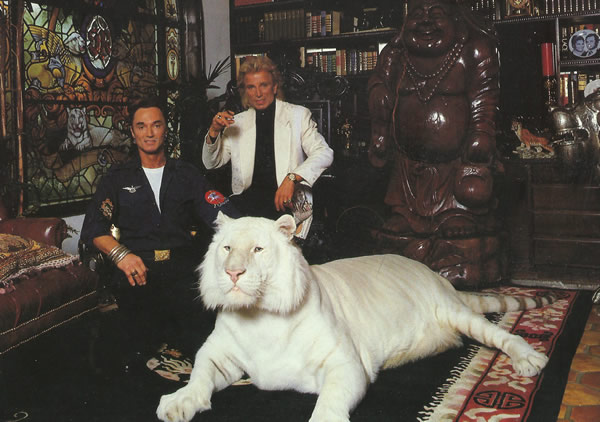
a&e features
Eastern Shore chef named James Beard Finalist
Harley Peet creates inventive food in an inclusive space

In a small Eastern Shore town filled with boutiques, galleries, and the occasional cry of waterfowl from the Chesapeake, Chef Harley Peet is most at home. In his Viennese-inflected, Maryland-sourced fine-dining destination Bas Rouge, Peet draws from his Northern Michigan upbringing, Culinary Institute of America education, and identity as a gay man, for inspiration.
And recently, Peet was named a James Beard Finalist for Best Chef: Mid-Atlantic – the first “Best Chef: Mid-Atlantic” finalist representing the Eastern Shore.
Peet, after graduation from the Culinary Institute of America, took a position as sous chef at Tilghman Island Inn, not far from Bas Rouge. Falling in love with the Eastern Shore, he continued his passion for racing sailboats, boating, gardening, and fishing, and living his somewhat pastoral life as he opened Bas Rouge in 2016 as head chef, a restaurant part of the Bluepoint Hospitality group, which runs more than a dozen concepts in and around Easton, Md.
Coming from a rural area and being gay, Peet knew he had his work cut out for him. He was always aware that the service and hospitality industry “can be down and dirty and rough.”
Now as a leader in the kitchen, he aims to “set a good example, and treat people how I want to be treated. I also want to make sure if you’re at our establishment, I’m the first to stand up and say something.”
The Bas Rouge cuisine, he says, is Contemporary European. “I’m inspired by old-world techniques of countries like Austria, Germany, and France, but I love putting a new spin on classic dishes and finding innovative ways to incorporate the bounty of local Chesapeake ingredients.”
His proudest dish: the humble-yet-elevated Wiener Schnitzel. “It is authentic to what one would expect to find in Vienna, down to the Lingonberries.” From his in-house bakery, Peet dries and grinds the housemade Kaiser-Semmel bread to use as the breadcrumbs.
Peet works to support the LGBTQ community inside and outside of the kitchen. “I love that our Bluepoint Hospitality team has created welcoming spaces where our patrons feel comfortable dining at each of our establishments. Our staff have a genuine respect for one another and work together free of judgment.”
Representing Bluepoint, Peet has participated in events like Chefs for Equality with the Human Rights Campaign, advocating for LGBTQ rights.
At Bas Rouge, Peet brings together his passion for inclusion steeped in a sustainability ethic. He sees environmental stewardship as a way of life. Peet and his husband have lived and worked on their own organic farm for several years. Through research in Europe, he learned about international marine sourcing. Witnessing the impacts of overfishing, Peet considers his own role in promoting eco-friendly practices at Bas Rouge. To that end, he ensures responsible sourcing commitments through his purveyors, relationships that have helped create significant change in how people dine in Easton.
“I have built great relationships in the community and there’s nothing better than one of our long-standing purveyors stopping in with a cooler of fresh fish from the Chesapeake Bay. This goes especially for catching and plating the invasive blue catfish species, which helps control the species’ threat to the local ecosystem.
Through his kitchen exploits, Peet expressed a unique connection to another gay icon in a rural fine-dining restaurant: Patrick O’Connell, of three Michelin starred Inn at Little Washington. In fact, Peet’s husband helped design some of O’Connell’s kitchen spaces. They’ve both been able to navigate treacherous restaurant-industry waters, and have come out triumphant and celebrated. Of O’Connell, Peet says that he “sees [his restaurants] as canvas, all artistry, he sees this as every night is a show.” But at the same time, his “judgment-free space makes him a role model.”
Being in Easton itself is not without challenges. Sourcing is a challenge, having to either fly or ship in ingredients, whereas urban restaurants have the benefit of trucking, he says. The small town “is romantic and charming,” but logistics are difficult – one of the reasons that Peet ensures his team is diverse, building in different viewpoints, and also “making things a hell of a lot more fun.”
Reflecting on challenges and finding (and creating) space on the Eastern Shore, Peet confirmed how important it was to surround himself with people who set a good example, and “if you don’t like the way something is going, fuck them and move on.”
a&e features
What to expect at the 2024 National Cannabis Festival
Wu-Tang Clan to perform; policy discussions also planned

(Editor’s note: Tickets are still available for the National Cannabis Festival, with prices starting at $55 for one-day general admission on Friday through $190 for a two-day pass with early-entry access. The Washington Blade, one of the event’s sponsors, will host a LGBTQIA+ Lounge and moderate a panel discussion on Saturday with the Mayor’s Office of LGBTQ Affairs.)
With two full days of events and programs along with performances by Wu-Tang Clan, Redman, and Thundercat, the 2024 National Cannabis Festival will be bigger than ever this year.
Leading up to the festivities on Friday and Saturday at Washington, D.C.’s RFK Stadium are plenty of can’t-miss experiences planned for 420 Week, including the National Cannabis Policy Summit and an LGBTQ happy hour hosted by the District’s Black-owned queer bar, Thurst Lounge (both happening on Wednesday).
On Tuesday, the Blade caught up with NCF Founder and Executive Producer Caroline Phillips, principal at The High Street PR & Events, for a discussion about the event’s history and the pivotal political moment for cannabis legalization and drug policy reform both locally and nationally. Phillips also shared her thoughts about the role of LGBTQ activists in these movements and the through-line connecting issues of freedom and bodily autonomy.
After D.C. residents voted to approve Initiative 71 in the fall of 2014, she said, adults were permitted to share cannabis and grow the plant at home, while possession was decriminalized with the hope and expectation that fewer people would be incarcerated.
“When that happened, there was also an influx of really high-priced conferences that promised to connect people to big business opportunities so they could make millions in what they were calling the ‘green rush,'” Phillips said.
“At the time, I was working for Human Rights First,” a nonprofit that was, and is, engaged in “a lot of issues to do with world refugees and immigration in the United States” — so, “it was really interesting to me to see the overlap between drug policy reform and some of these other issues that I was working on,” Phillips said.
“And then it rubbed me a little bit the wrong way to hear about the ‘green rush’ before we’d heard about criminal justice reform around cannabis and before we’d heard about people being let out of jail for cannabis offenses.”
“As my interests grew, I realized that there was really a need for this conversation to happen in a larger way that allowed the larger community, the broader community, to learn about not just cannabis legalization, but to understand how it connects to our criminal justice system, to understand how it can really stimulate and benefit our economy, and to understand how it can become a wellness tool for so many people,” Phillips said.
“On top of all of that, as a minority in the cannabis space, it was important to me that this event and my work in the cannabis industry really amplified how we could create space for Black and Brown people to be stakeholders in this economy in a meaningful way.”

“Since I was already working in event production, I decided to use those skills and apply them to creating a cannabis event,” she said. “And in order to create an event that I thought could really give back to our community with ticket prices low enough for people to actually be able to attend, I thought a large-scale event would be good — and thus was born the cannabis festival.”
D.C. to see more regulated cannabis businesses ‘very soon’
Phillips said she believes decriminalization in D.C. has decreased the number of cannabis-related arrests in the city, but she noted arrests have, nevertheless, continued to disproportionately impact Black and Brown people.
“We’re at a really interesting crossroads for our city and for our cannabis community,” she said. In the eight years since Initiative 71 was passed, “We’ve had our licensed regulated cannabis dispensaries and cultivators who’ve been existing in a very red tape-heavy environment, a very tax heavy environment, and then we have the unregulated cannabis cultivators and cannabis dispensaries in the city” who operate via a “loophole” in the law “that allows the sharing of cannabis between adults who are over the age of 21.”
Many of the purveyors in the latter group, Phillips said, “are looking at trying to get into the legal space; so they’re trying to become regulated businesses in Washington, D.C.”
She noted the city will be “releasing 30 or so licenses in the next couple of weeks, and those stores should be coming online very soon” which will mean “you’ll be seeing a lot more of the regulated stores popping up in neighborhoods and hopefully a lot more opportunity for folks that are interested in leaving the unregulated space to be able to join the regulated marketplace.”
National push for de-scheduling cannabis
Signaling the political momentum for reforming cannabis and criminal justice laws, Wednesday’s Policy Summit will feature U.S. Sens. Raphael Warnock (D-Ga.), Jeff Merkley (D-Ore.), Elizabeth Warren (D-Mass.), and Chuck Schumer (D-N.Y.), the Senate majority leader.
Also representing Capitol Hill at the Summit will be U.S. Congresswoman Eleanor Holmes Norton (D-D.C.) and U.S. Reps. Earl Blumenauer (D-Ore.) and Barbara Lee (D-Calif.) — who will be receiving the Supernova Women Cannabis Champion Lifetime Achievement Award — along with an aide to U.S. Rep. David Joyce (R-Ohio).
Nationally, Phillips said much of the conversation around cannabis concerns de-scheduling. Even though 40 states and D.C. have legalized the drug for recreational and/or medical use, marijuana has been classified as a Schedule I substance since the Controlled Substances Act was passed in 1971, which means it carries the heftiest restrictions on, and penalties for, its possession, sale, distribution, and cultivation.
The U.S. Department of Health and Human Services formally requested the drug be reclassified as a Schedule III substance in August, which inaugurated an ongoing review, and in January a group of 12 Senate Democrats sent a letter to the Biden-Harris administration’s Drug Enforcement Administration urging the agency to de-schedule cannabis altogether.
Along with the Summit, Phillips noted that “a large contingent of advocates will be coming to Washington, D.C. this week to host a vigil at the White House and to be at the festival educating people” about these issues. She said NCF is working with the 420 Unity Coalition to push Congress and the Biden-Harris administration to “move straight to de-scheduling cannabis.”
“This would allow folks who have been locked up for cannabis offenses the chance to be released,” she said. “It would also allow medical patients greater access. It would also allow business owners the chance to exist without the specter of the federal government coming in and telling them what they’re doing is wrong and that they’re criminals.”
Phillips added, however, that de-scheduling cannabis will not “suddenly erase” the “generations and generations of systemic racism” in America’s financial institutions, business marketplace, and criminal justice system, nor the consequences that has wrought on Black and Brown communities.
An example of the work that remains, she said, is making sure “that all people are treated fairly by financial institutions so that they can get the funding for their businesses” to, hopefully, create not just another industry, but “really a better industry” that from the outset is focused on “equity” and “access.”
Policy wonks should be sure to visit the festival, too. “We have a really terrific lineup in our policy pavilion,” Phillips said. “A lot of our heavy hitters from our advocacy committee will be presenting programming.”
“On Saturday there is a really strong federal marijuana reform panel that is being led by Maritza Perez Medina from the Drug Policy Alliance,” she said. “So that’s going to be a terrific discussion” that will also feature “representation from the Veterans Cannabis Coalition.”
“We also have a really interesting talk being led by the Law Enforcement Action Partnership about conservatives, cops, and cannabis,” Phillips added.
Cannabis and the LGBTQ community
“I think what’s so interesting about LGBTQIA+ culture and the cannabis community are the parallels that we’ve seen in the movements towards legalization,” Phillips said.
The fight for LGBTQ rights over the years has often involved centering personal stories and personal experiences, she said. “And that really, I think, began to resonate, the more that we talked about it openly in society; the more it was something that we started to see on television; the more it became a topic in youth development and making sure that we’re raising healthy children.”
Likewise, Phillips said, “we’ve seen cannabis become more of a conversation in mainstream culture. We’ve heard the stories of people who’ve had veterans in their families that have used cannabis instead of pharmaceuticals, the friends or family members who’ve had cancer that have turned to CBD or THC so they could sleep, so they could eat so they could get some level of relief.”
Stories about cannabis have also included accounts of folks who were “arrested when they were young” or “the family member who’s still locked up,” she said, just as stories about LGBTQ people have often involved unjust and unnecessary suffering.
Not only are there similarities in the socio-political struggles, Phillips said, but LGBTQ people have played a central role pushing for cannabis legalization and, in fact, in ushering in the movement by “advocating for HIV patients in California to be able to access cannabis’s medicine.”
As a result of the queer community’s involvement, she said, “the foundation of cannabis legalization is truly patient access and criminal justice reform.”
“LGBTQIA+ advocates and cannabis advocates have managed to rein in support of the majority of Americans for the issues that they find important,” Phillips said, even if, unfortunately, other movements for bodily autonomy like those concerning issues of reproductive justice “don’t see that same support.”
a&e features
Juliet Hawkins’s music defies conventional categorization
‘Keep an open mind, an open heart, and a willingness to evolve’
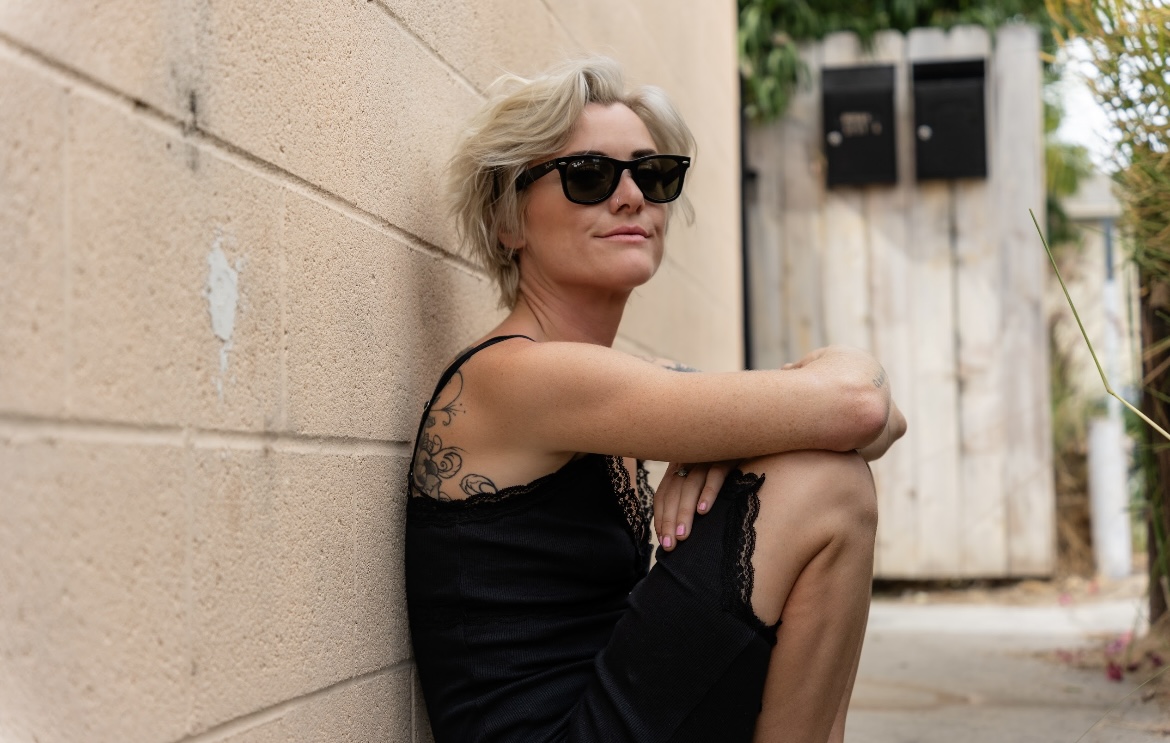
LONG BEACH, Calif. – Emerging from the dynamic music scene of Los Angeles, Juliet Hawkins seamlessly integrates deeply soulful vocals with contemporary production techniques, crafting a distinctive sound that defies conventional categorization.
Drawing inspiration from the emotive depth of Amy Winehouse and weaving together elements of country, blues, and pop, Hawkins’ music can best be described as a fusion–perhaps best termed as soulful electronica. Yet, even this characterization falls short, as Hawkins defines herself as “a blend of a million different inspirations.”
Hawkins’s musical palette mirrors her personae: versatile and eclectic. Any conversation with Hawkins makes this point abundantly clear. She exhibits the archetype of a wild, musical genius while remaining true to her nature-loving, creative spirit. Whether recording in the studio for an album release, performing live in a studio setting, or playing in front of a live audience, Hawkins delivers her music with natural grace.
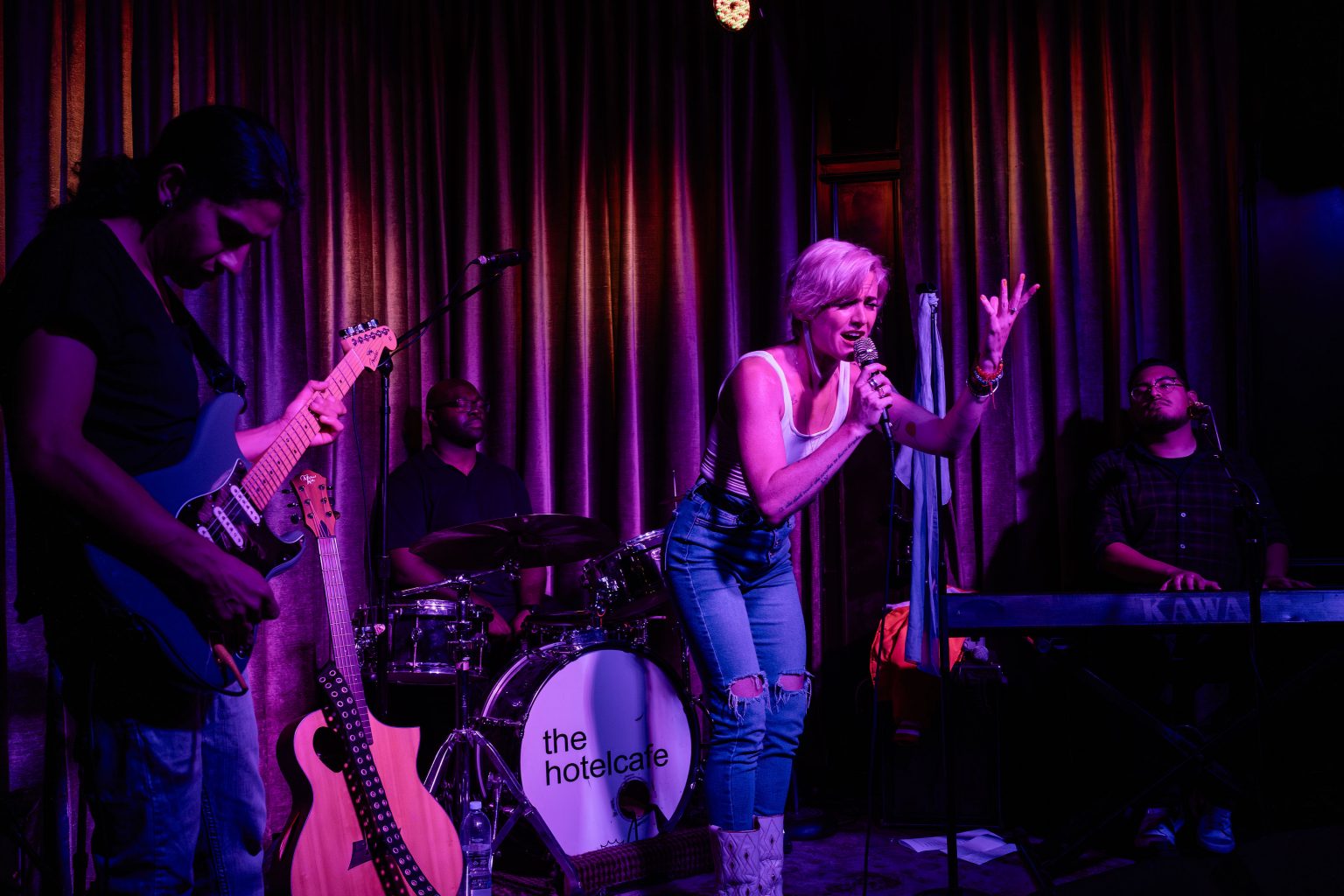
However, Hawkins’s musical journey is far from effortless. Amid personal challenges and adversity, she weaves her personal odyssey of pain and pleasure, transforming these experiences into empowering anthems.
In a candid interview with the Blade, Hawkins spoke with profound openness and vulnerability about her past struggles with opiate and heroin addiction: “That was 10 years ago that I struggled with opiates,” she shared. Yet, instead of letting her previous addiction define her, Hawkins expressed to the Blade that she harbors no shame about her past. “My newer music is much more about empowerment than recovery,” she explained, emphasizing that “writing was the best way to process trauma.”
Despite her struggles with addiction, Hawkins managed to recover. However, she emphasizes that this recovery is deeply intertwined with her spiritual connection to nature. An illustrative instance of Hawkins’ engagement with nature occurred during the COVID pandemic.
Following an impulse that many of us have entertained, she bought a van and chose to live amidst the trees. It was during this period that Hawkins composed the music for her second EP, titled “Lead with Love.”
In many ways, Hawkins deep spiritual connection to nature has been profoundly shaped by her extensive travels. Born in San Diego, spending her formative years in Massachusetts, and later moving to Tennessee before returning to Southern California, she has broadened her interests and exposed herself to the diverse musical landscapes across America.
“Music is the only thing I have left,” Hawkins confides to the Blade, highlighting the integral role that music has in her life. This intimate relationship with music is evident in her sultry and dynamic compositions. Rather than imitating or copying other artists, Hawkins effortlessly integrates sounds from some of her favorite musical influences to create something new. Some of these influences include LP, Lucinda Williams, Lana Del Rey, and, of course, Amy Winehouse, among others.
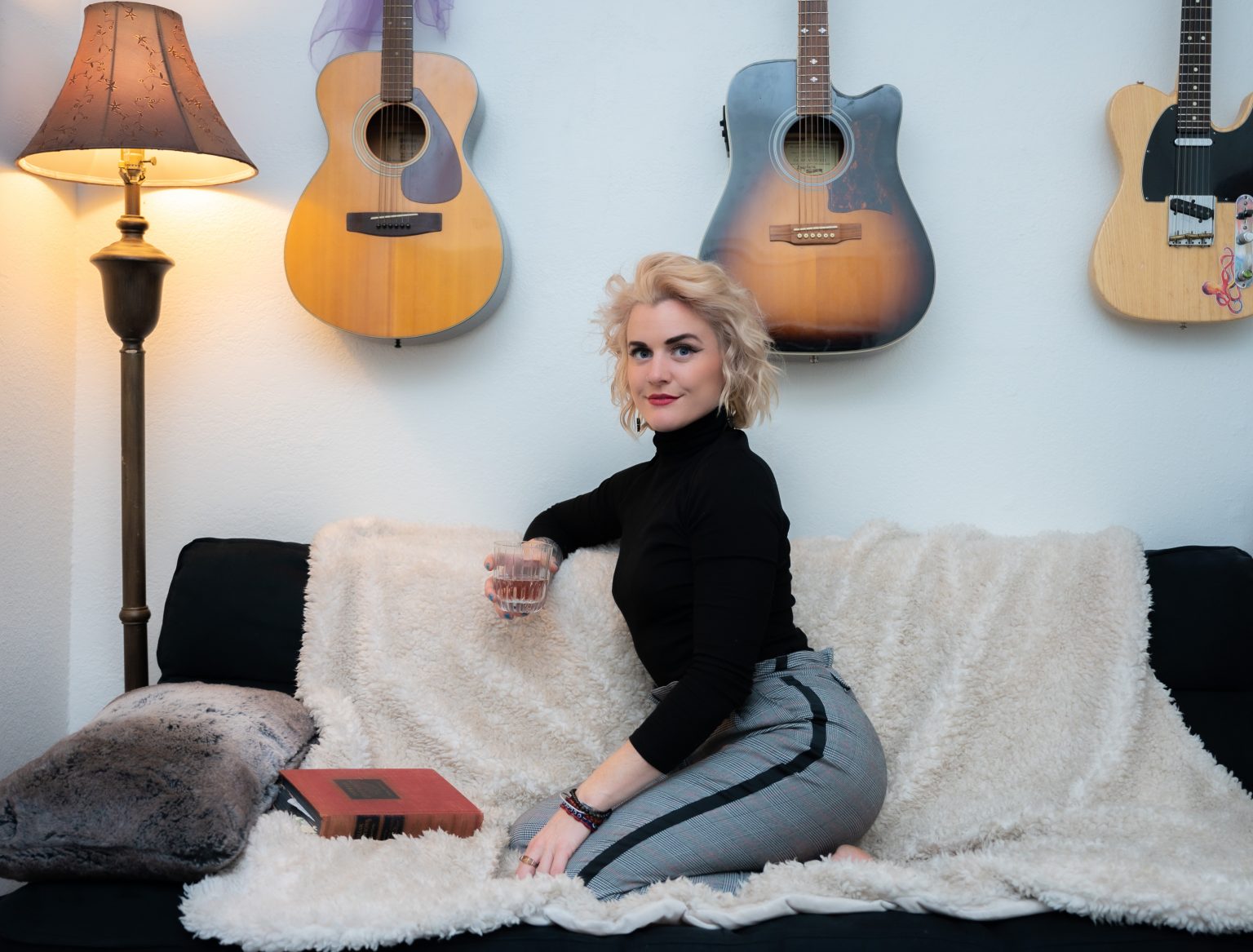
Hawkins has always been passionate about music—-she began with piano at a young age, progressed to guitar, and then to bass, eagerly exploring any instrument she could get her hands on. However, instead of following a traditional path of formalized lessons and structured music theory, Hawkins told the Blade that she “has a hard time following directions and being told what to do.”
This independent approach has led her to experiment with various genres and even join unexpected groups, such as a tribute band for Eric Clapton and Cream. While she acknowledges that her eclectic musical interests might be attributed to ADHD, she holds a different belief: “Creative minds like to move around.”
When discussing her latest musical release — “Stay True (the live album)” which was recorded in a live studio setting — Hawkins describes the experience as a form of improvisation with both herself and the band:
“[The experience] was this divine honey that was flowing through all of us.” She explains that this live album was uncertain in the music’s direction. “For a couple of songs,” Hawkins recalls, “we intuitively closed them out.” By embracing creative spontaneity and refusing to be constrained by fear of mistakes, the live album authentically captures raw sound, complete with background chatter, extended outros, and an extremely somber cover of Ozzy Osbourne’s “Crazy Train” coupled with a slow piano and accompanied strings.
While “Stay True” was a rewarding experience for Hawkins, her favorite live performance took place in an unexpected location—an unattended piano in the middle of an airport. As she began playing Beethoven’s “Moonlight Sonata”, Hawkins shared with the Blade a universal connection we all share with music: “This little girl was dancing as I was playing.”
After the performance, tears welled in Hawkins’ eyes as she was touched by the young girl’s appreciation of her musicianship. Hawkins tells the Blade, “It’s not about playing to an audience—it’s about finding your people.”
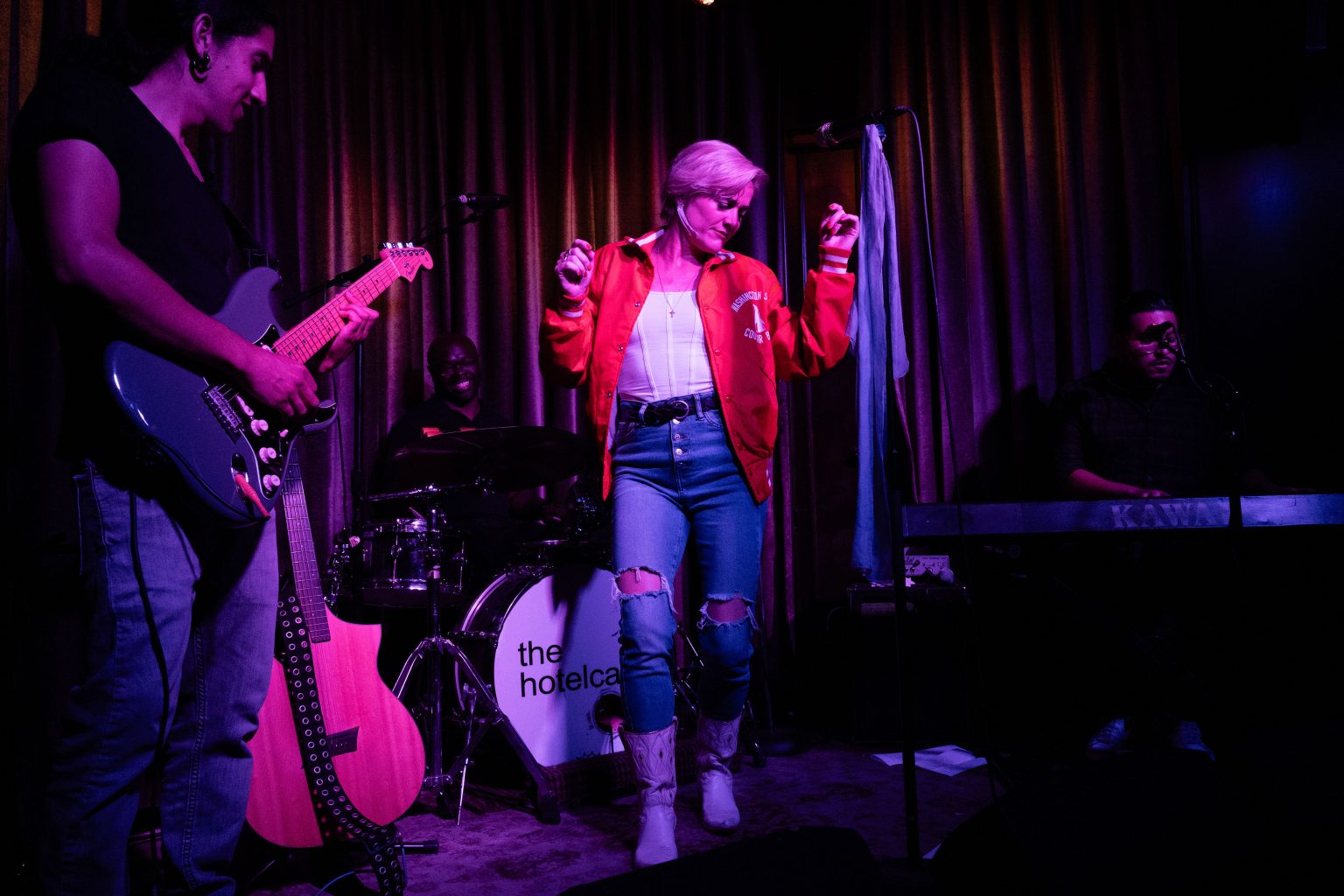
What sets Hawkins apart as an artist is her ability to connect with her audience in diverse settings. She highlights EDC, an electronic dance music festival, as a place where she unabashedly lets her “freak flag” fly and a place to connect with her people. Her affinity for electronic music not only fuels her original pop music creations, but also inspires her to reinterpret songs with an electronic twist. A prime example of this is with her electronic-style cover of Tal Bachman’s 90’s hit, “She’s So High.”
As an openly queer woman in the music industry, Hawkins is on a mission to safeguard artistic integrity. In songs like “My Father’s Men,” she bares her vulnerability and highlights the industry’s misogyny, which often marginalizes gender minorities in their pursuit of artistic expression.
She confides to the Blade, “The industry can be so sexist, misogynist, and oppressive,” and points out that “there are predators in the industry.” Yet, rather than succumbing to apathy, Hawkins is committed to advocating for gender minorities within the music industry.
“Luckily, people are rising up against misogyny, but it’s still there. ‘My Father’s Men’ is a message: It’s time for more people who aren’t just white straight men to have a say.”
Hawkins is also an activist for other causes, with a fervent belief in the preservation of bodily autonomy. Her self-directed music video “I’ll play Daddy,” showcases the joy of embracing one’s body with Hawkins being sensually touched by a plethora of hands. While the song, according to Hawkins, “fell upon deaf ears in the south,” it hasn’t stopped Hawkins from continuing to fight for the causes she believes in. In her interview, Hawkins encapsulated her political stance by quoting an artist she admires:
“To quote Pink, ‘I don’t care about your politics, I care about your kids.’”
When Hawkins isn’t writing music or being a champion for various causes, you might catch her doing the following: camping, rollerblading, painting, teaching music lessons, relaxing with Bernie (her beloved dog), stripping down for artsy photoshoots, or embarking on a quest to find the world’s best hollandaise sauce.
But at the end of the day, Hawkins sums up her main purpose: “To come together with like-minded people and create.”
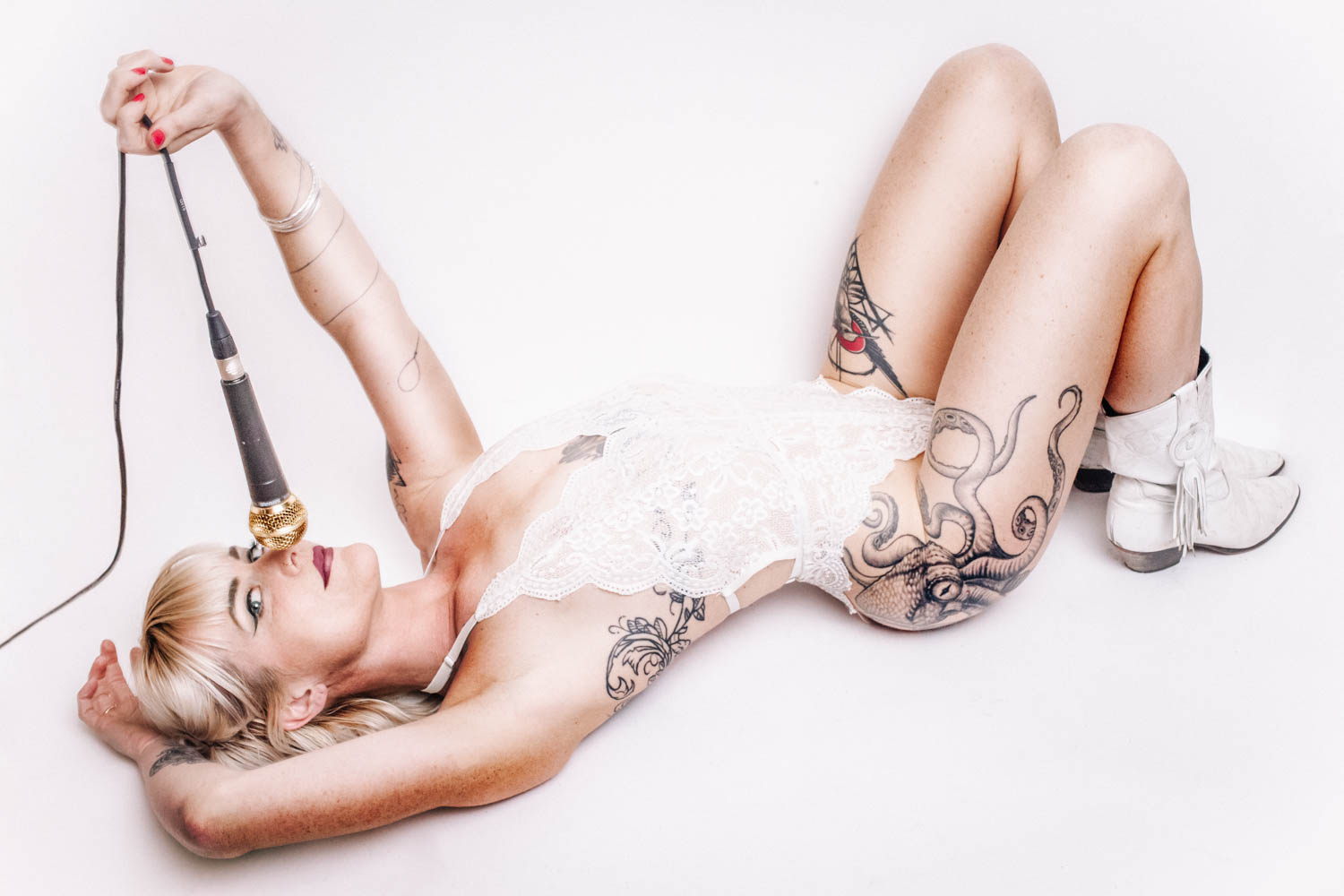
Part of this ever-evolving, coming-of-age-like journey includes an important element: plant-based medicine. Hawkins tells the Blade that she acknowledges her previous experience with addiction and finds certain plants to be useful in her recovery:
“The recovery thing is tricky,” Hawkins explains, “I don’t use opiates—-no powders and no pills—but I am a fan of weed, and I think psilocybin can be helpful when used at the right time.” She emphasizes the role of psychedelics in guiding her towards her purpose. “Thanks for psychedelics, I have a reignited sense of purpose … Music came naturally to me as an outlet to heal.”
While she views the occasional dabbling of psychedelics as a spiritual practice, Hawkins also embraces other rituals, particularly those she performs before and during live shows. “I always carry two rocks with me: a labradorite and a tiger’s eye marble,” she explains.
-

 State Department2 days ago
State Department2 days agoState Department releases annual human rights report
-

 Maryland4 days ago
Maryland4 days agoJoe Vogel campaign holds ‘Big Gay Canvass Kickoff’
-

 Politics3 days ago
Politics3 days agoSmithsonian staff concerned about future of LGBTQ programming amid GOP scrutiny
-

 The White House1 day ago
The White House1 day agoWhite House debuts action plan targeting pollutants in drinking water












